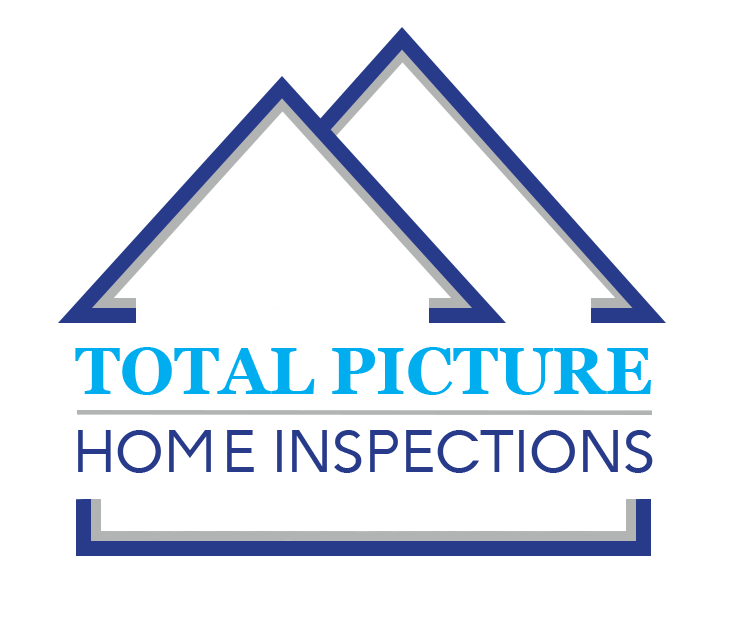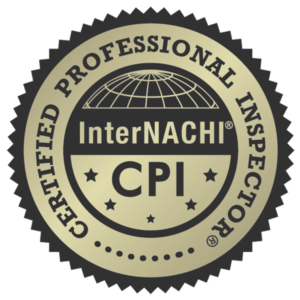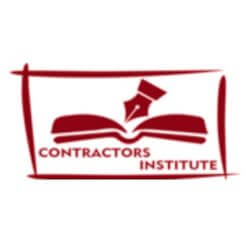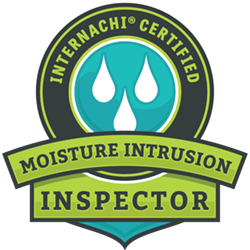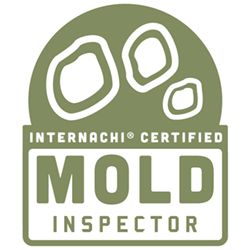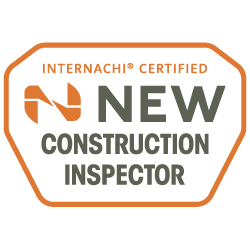WHAT TO EXPECT
FROM YOUR INSPECTION
Total Picture Home Inspections will meet and exceed the industry leading InterNACHI Home Inspection Standards of Practice, a copy of which is available at www.nachi.org/sop. The inspection literally covers hundreds of systems/components, with each system/component having an infinite number of acknowledging status comments. In all, a most complete inspection. Please note that these services apply to the full service (Pre-Purchase (Buyer) Inspection) inspection. Services may vary depending on the actual service selected (Services).
Rather than reiterate the standards of practice and how Total Picture Home Inspections meets and exceeds these standards, following are some of the more common areas of concern that will be addressed in your inspection.
Lots and Grounds
Settlement, unsafe decks and balconies and retaining walls, moisture intrusion from poor grading and vegetation
Exterior
Trim damage and decay for the fascia, soffits, and door and window frames, exterior electric that may not be Ground Fault Circuit protected, improper hose bibbs that don’t guard against cross-contamination
Location of Emergency Cutoffs
Knowing where the cutoffs are can save time and possible expense. Cutoffs include: Main Water Shutoff; Furnace Shutoff; Natural Gas/Propane Shutoffs; AC Shutoff, Electric Shutoff, Water Heater Shutoff (Gas and Water)
Roof
Is your chimney in good shape? What is the expected remaining life of your roof – great for planning and budgeting. What about the gutters? Do your gutter guards really work or do they simply allow water to pass over them to the side of the home? Do your downspouts/leaders safely lead water away from the foundation where it could penetrate and cause considerable damage.
Garage
Are you aware of the fireproofing enablers that protect your family from a fire trying to enter livable interior space? Does your garage door(s) have the requisite safety features? Do you have a heat detector in the garage? Do you have a carbon monoxide detector?
Electrical
Is there a fire hazard present that could literally burn your home down? Do you have the right gauge wires for the amperage? Do you have single use equipment for applicable breakers (e.g., sump pump only); Do you have double tapping that could lead to sparking and loose wiring? Is your main service panel bonded to avoid electrical shock; though sub-panels not bonded? Do your GFCIs and AFCIs work per specifications? Likely you don’t have knob and tube electrical wiring but what if you do? And do you have aluminum branch circuit wiring? Many homes do and that is a problem area that can cause fires.
Structure
What is the home's structure? Will it adequately support the new Baby Grand? Is the structure sound and not deteriorating due to the passage of time? Are the joists/trusses and posts & piers holding up? Is the subflooring holding up? Do you hear floor squeaking in some rooms?
Attic
Is the attic adequately ventilated; if not are you paying way too much to heat/cool the home? Is the attic correctly ventilated? Is the sheathing in good condition; not showing water intrusion stains? Same for plumbing/venting? If there is a HVAC unit in the attic, when was the last time it was evaluated? And how about the trusses and gusset plates? Sound condition and stable?
Basement
Is there a flooding risk from outside? Do you have a sump pump or grinder, both in good working condition? Are there signs of moisture penetration, past or present/active? Are egress areas satisfactory?
Crawl Space
When was the last time you inspected the crawl space? Perhaps never. There are structural elements to assess, moisture content to be evaluated and often there is an HVAC unit, perhaps even a filter that needs to be changed? Is it properly ventilated and is there a moisture barrier? What about the insulation? By chance is the water cutoff located in the crawl space?
Heating System
How old is the unit? Is the capacity sufficient for today’s home? Did you know you can tell the age and capacity from the serial number and model number? Is it efficient according to modern standards? Does it need replacing and if so, how soon? Is there any blowback from combustion issues that could cause a fire? Is the unit a heat pump or gas/oil fired unit? Is the duct work in reasonable shape?
Air Conditioning
Same as for the heating system – how old is the unit and is the capacity sufficient for today’s home? What is its expected service life and should you budget for a replacement in the near-term? Is it a heat pump? Is the temperature differential (air temp in and air temp out) within industry standards?
Fireplace
Is your fireplace structurally sound? Many homes have converted from wood burning to gas fireplaces. Great…but did you know there are structural changes necessary for the conversion? Have these changes been made? If not, it could be problematic.
Plumbing
Where is your water cutoff if you need to get to it quick? What is the water pressure? If too much it can damage and/or shorten the life expectancy of the existing system. What kinds of supply and drain lines do you have? Perhaps CPVC, PEX or other units. But what if the lines are POLYBUTYLENE (PB 2110), whether the main service line or the distribution line? Millions of homes had PB 2110 installed when it was considered the “water line of the future.” But years later it was assessed that these lines decayed from chlorine and other chemicals found in the water and sprung leaks if not simply breaking apart causing untold levels of damage for which successful class action suits were awarded. If your home has these lines, should they be replaced? Should I buy a home with PB 2110 lines?
Bathrooms
Are there plumbing trap leaks? How about leaks around the toilet, shower and even windows? Are the counter outlets GFCI protected? This is very, very important? And where is the GFCI reset as you will likely “blow” the breaker with a hair dryer from time to time.
Kitchen
Are the counter electrical outlets GFCI protected? This is very important. Do all the appliances work? Is there an air gap in the drain line between the dish washer and sink/disposal drain line to prevent cross-contamination of bad water from the dishwasher into your household drinking water supply. This is very important.
Laundry Room
Are you GFCI protected? Is venting correct? Is the venting line bent and cracked and not efficient? How about the washing machine drainage tubing? Do you have a gas dryer and if so, is there a carbon monoxide detector?
Bedrooms and Living areas
Is there AFCI protection? Do you have carbon monoxide detectors near the bedrooms? Are the windows in good condition and operable? If there is a fire and a window exit is necessary, will the windows open per specifications? Do the floors creak under the carpet? Do the doors open/close and latch, and lock?
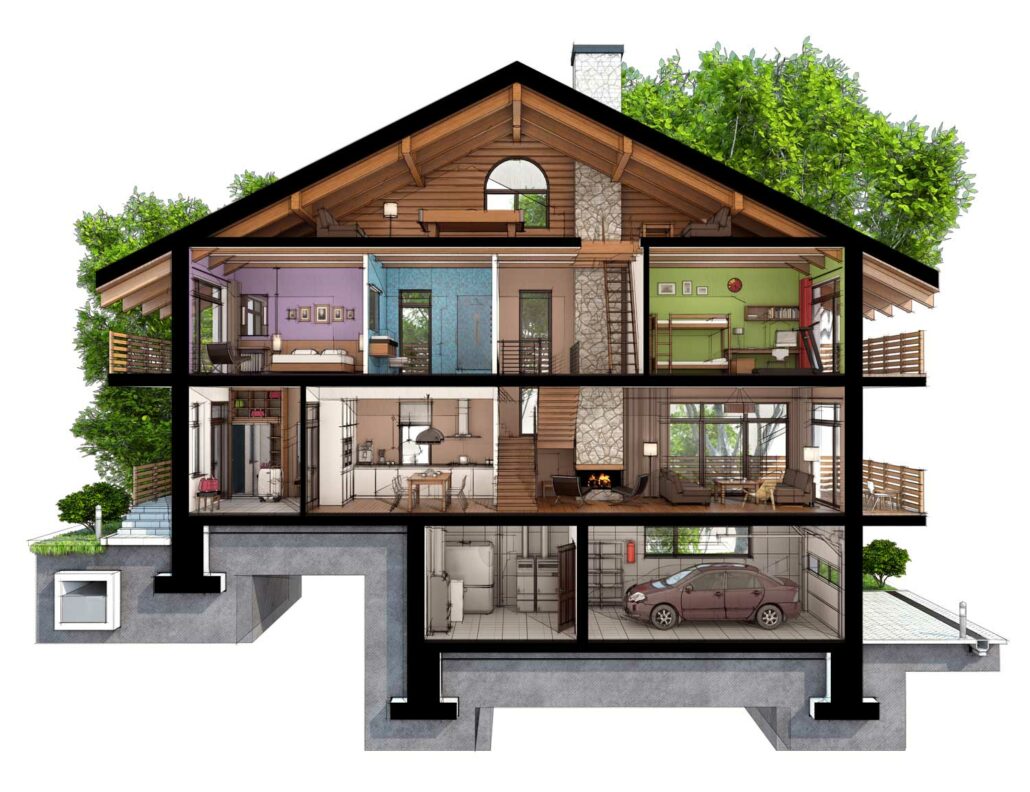
There are three primary reasons to get a home inspection. First, for peace of mind that you are making a wise home investment; second, for ACTIONABLE data you can put to use; and third, because the decision to invest in a home inspection is one of the best returns on investment you can make. These reasons are not just applicable to the (prospective) home buyer, but also for the current home owner, whether they are interested in getting a kick-start on selling their home or are looking to better understand the condition of their home. And a home inspection will answer many of their questions while pointing out areas that need attention or may in fact be safety concerns.
